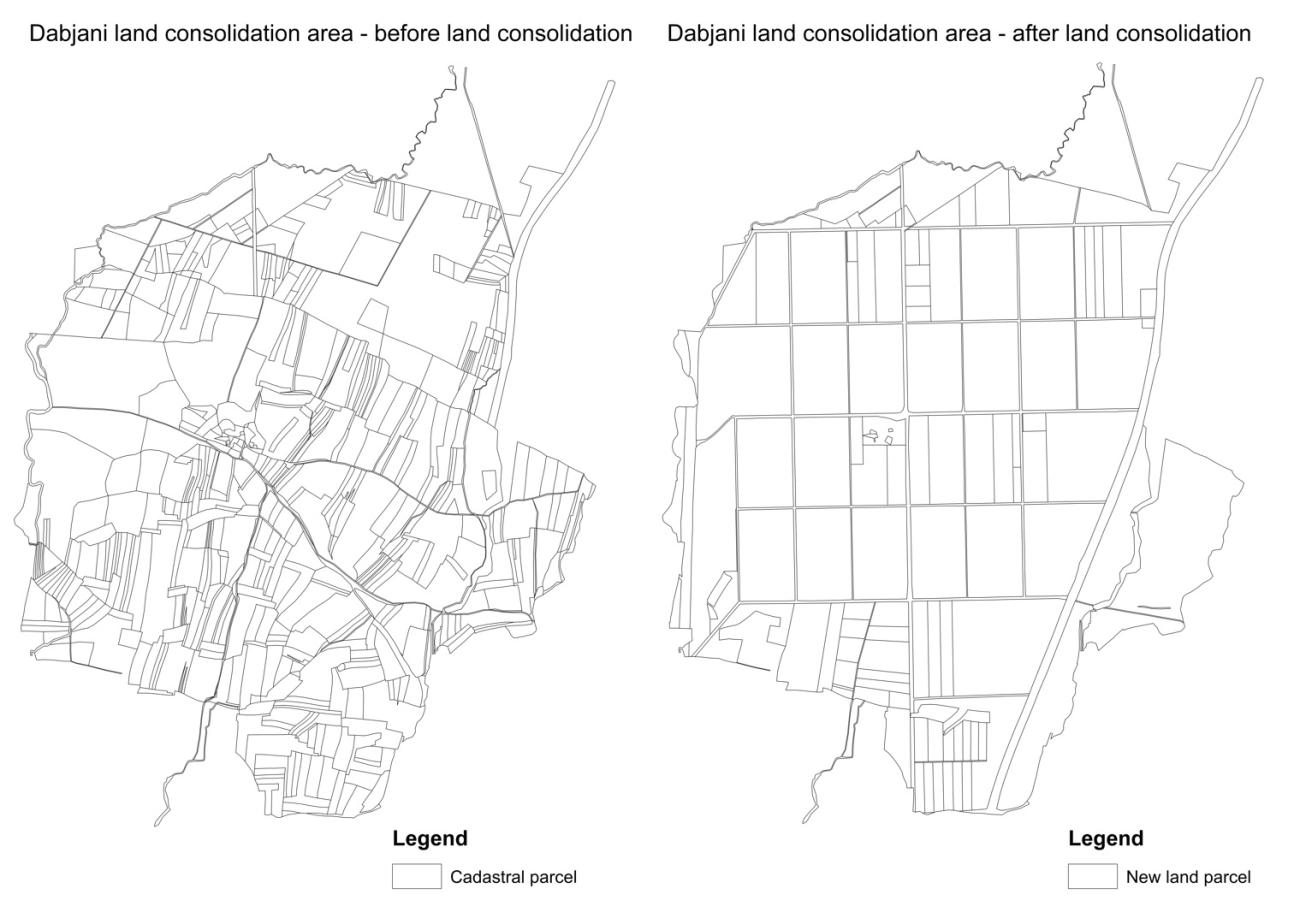The second majority-based land consolidation plan in North Macedonia adopted in the village of Dabjani

Village of Dabjani (Dolneni Municipality)
The Land Consolidation Assembly with qualified majority of landowners in the village of Dabjani (Dolneni Municipality) adopted the Plan for re-allotment of the agricultural land in the Dabjani land consolidation area, becoming the second majority-based land consolidation project adopted in North Macedonia. This is another major milestone achieved under the European Union-funded MAINLAND project, which is co-funded by the Food and Agriculture Organization of the United Nations (FAO) and implemented in close cooperation with the Ministry of Agriculture, Forestry and Water Economy.
Dabjani is the largest active land consolidation project area in North Macedonia. It concerns 742 hectares (ha) of agricultural land, owned by 85 private landowners (435 ha) and the State (307 ha). In the land re-allotment process supported by the MAINLAND project, the number of land parcels in Dabjani was reduced by almost five times, from 602 to 127 parcels. The newly formed parcels are regularly-shaped, with an average size of 5,84 ha, up from just 1,23 ha before land consolidation, and allow for more efficient farming practices.
Land consolidation brought additional benefits to the rural population in Dabjani. Many land parcels in the land consolidation area, which were restituted to private owners following the land reform on denationalization were, either located in the middle of state-owned agricultural land blocks, or restituted in land plots co-owned with the State. Through the land consolidation process with the support from the MAINLAND project, both, the private landowners in Dabjani and the State, managed to resolve the longstanding issues with the very complicated land rights situation, which negatively affected the utilization of the agricultural land in the whole area, as a consequence of the land restitution process in the past.
This is the case with Mirjana Kapkoska-Angeleska, a women farmer from the village of Dabjani. With the restitution of the nationalized agricultural land she inherited agricultural land from her grandfather, which was abandoned for years, because it was fragmented into 63 small parcels, scattered all over the field and almost impossible to farm. Thanks to the land consolidation project, all her parcels are now consolidated in just one parcel, eight hectares large and regularly shaped. She will have one property sheet and will finally be able to begin using her land for agricultural production.
According to FAO Land Tenure Officer Morten Hartvigsen, the project in Dabjani has added new dimensions and lessons learned on the introduction of land consolidation in North Macedonia, in particular how land consolidation can be applied to address land abandonment and in this way strengthen local food production and generate new income opportunities in rural areas.
Following the adoption of the land re-allotment plan for Dabjani, the registration process for the newly formed land parcels in the Real Estate Cadastre will start during February-March 2022, along with staking out of the new land parcels on the field. The final step in the land consolidation process in Dabjani – agricultural infrastructure improvements, including rehabilitation and construction of field access roads in the land consolidation area, is expected to be finalized in 2022, with financial support from the European Union.
LINKS:
VIDEO:
European Union-FAO support to agricultural land consolidation in North Macedonia
The first majority-based land consolidation plan adopted in Egri, North Macedonia
Land consolidation is a missing link for farmers in North Macedonia







